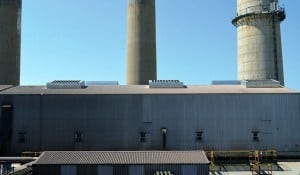5 Signs It’s Time to Look into Natural Ventilation
The Extra Benefits of a Natural Ventilation System
There are many great reasons to choose a natural ventilation system, but how do you determine if you really need to have such a system installed? You will first need to learn the answers to the following questions.
- Can a natural system help the company cut down on energy costs?
- Does natural ventilating really conserve energy and help protect the environment?
- How does a natural ventilating system compare to a powered exhaust system?
- Will the installation of a natural system help ensure the health and safety of the employees?
- Are these types of ventilation systems beneficial to factories?
These are all great questions and taking the time to learn more about different types of ventilation system will help you make a more educated decision about whether such a system would benefit your company and your employees. It will also help you determine if the costs will justify the end result and the return on your investment from a business standpoint.
What Is Natural Ventilation?

Natural ventilation consists of supplying and removing air through a building by natural means. This is done without using a fan or any other type of mechanical system. The air pressure caused by the difference in temperature between the lower part of the building and the high section at the ceiling, causes the air to move through the undeveloped area. Coupled with the air flow outside of the building and the surroundings, this provides ample ventilation and cooling of the indoor space. By using the natural flow of the air, interior spaces can be kept cool and comfortable without powered equipment.
How This Ventilation Helps Cut Down on Energy Costs
This type of ventilation uses air pressure to push fresh air through a building. As the warm air rises above the chilly air, this ventilation system allows the warm air to rise and be ventilated through air vents at the top of the building. By using this method, a company would no longer need to use extensive mechanical fan systems to keep the air quality cool, comfortable, and safe. Therefore, since this method of ventilation does not make use of mechanical systems, it will save money on the energy costs and consumption. Every dollar you don’t have to spend powering an exhaust fan, or fixing a broken exhaust fan, is another dollar in your pocket.
How It Conserves Energy and Protects the Environment
Gravity is a sustainable source of energy. Using it will help lead to lower utility bills and could result in a reduction of energy use. Consuming less energy of course also means fewer carbon emissions associated with its production. Switching to natural ventilation can help you reduce your carbon footprint and save between 20 – 50% of the carbon emissions that would otherwise be associated with your building. This makes a natural flow great for the environment and for your bottom line.
How A Natural Ventilation System Compares to a Powered Exhaust System
A natural ventilating system is not only 100% less expensive to power, but it also requires much less maintenance than a powered air conditioning and exhaust system. Additionally, a natural ventilating system self-adjusts throughout the day, meaning the air moves faster inside when it is hotter outside. This gives the occupants of the building more comfortable surroundings. And of course, the more comfortable you keep your employees, the more productive they will be.
How The Installation of a Natural System Will Help the Health and Safety of Your Employees
A natural ventilating system allows fresh air to flow through a building. This will help reduce the chances of sick building syndrome. Sick building syndrome causes a myriad of illnesses from simple colds to major diseases. Keep the employees’ environment clean, healthy, and comfortable and it will be less likely you will have to deal with absences or potential lawsuits for not providing a safe working environment. And, fresh air has shown, in many cases to help reduce absences due to illness.
How Natural Ventilation Systems Are Beneficial for Factories
While it’s true that most factories don’t use the same air conditioning and ventilation systems as a commercial office building, that doesn’t mean they don’t experience ventilation problems. Factory air is hot & humid. It is often contaminated by particulate from the process as well.
Since a factory is too expensive or impractical to air condition factory workers are often expected to tolerate bad working conditions. However, from the company’s standpoint, they should be concerned about the potential health dangers to their employees. The buildup of toxic fumes and harmful byproducts in the air can cause problems. Coupled with long-term exposure to extremely hot temperatures, this creates an unsafe working environment. Furthermore, it can sometimes create a potential for a lawsuit if employees have to work in unsafe conditions.
The Bottom Line
A natural ventilation system can reduce your energy costs, conserve energy, protect the environment, and help keep your employees healthy and comfortable. Additionally, noisy fans and mechanical systems that are prone to extensive part breaks and belt tears. Furthermore, this requires frequent maintenance and replacement. As this ventilation system has no moving parts or powered equipment, breakdowns will be a thing of the past. A quick once-over to clean off dust, then oil the damper components and the equipment is new.
Needless to say, a new ventilation system could be very cost-effective and give you a big return on your investment. And that means the return on your invested dollars too. Finally, it also means a return on your human investment when it comes to your employees. Better ventilation means happier, healthier, and more productive employees. Natural ventilation is a win / win / win situation.
